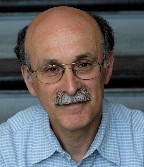The first time I spent a summer outside of New York City was 60 years ago.
I had just turned five and was not yet in school. In a way I was lucky that I was young enough to be insulated from the tumult that surrounded my parents’ case. I don’t remember my parents’ ongoing but fruitless appeals of their conviction. What I remember is playing on the floor of my grandmother Sophie Rosenberg’s house by myself with a few, small, metal toy cars or staring out the window watching the giant earthmovers build the roadbed of what would become the New York State Thruway on the other side of the Harlem River.
In contrast, my brother, who was in the third grade, was harassed when people found out who he was. The attacks did not come from his classmates, who at eight years old understood nothing about spying and communism. They came, instead, from their parents.
As a result, it was decided to get us out of New York City to live more anonymously with friends of our parents in rural New Jersey. But it took a while to arrange, and we did not move in with Ben and Sonya Bach in Toms River, New Jersey until the summer of 1952. I’d lived in Manhattan my entire life, and the green lawns, scrub forests, and fenced-in chicken pens of what was then farm country were a revelation to me. I quickly developed a strong sense of connection with the land that draws me into my garden to this day.
But mine was not an idyllic existence. I started kindergarten at Toms River Elementary school that September. Although no one seemed to know who we were, I still had a sense that the world was a dangerous place for my family and me. There were strong powers out there that I didn’t understand. I sensed from the adults around me that those forces had taken my parents away, were doing bad things to them and something even worse might happen.
I remember feeling vulnerable on the school bus. There was another small boy on the bus who, unlike me, had a nervous tic and stuttered. The other kids teased him. Once his mother, a Holocaust survivor with a Yiddish accent, scolded the driver for not protecting her son. I remember thinking I was just a step away from becoming that boy. I thought that the kids who tormented the boy were somehow connected to the people who had taken my parents away.
My year in New Jersey created more than a bond to the land. I also internalized two seemingly contradictory urges. The first caused me to identify strongly with that boy, and the second made me resolve not to become a victim like him.
Given such deep-seated needs, it isn’t surprising that I’ve derived so much personal satisfaction from creating and building the Rosenberg Fund for Children. We find the children of targeted activists — those with whom I identify so strongly — and through our grants, strive to ameliorate whatever victimization they suffer. Since you, our donors, make this possible, I fervently hope that you gain just as much fulfillment from what we do.

